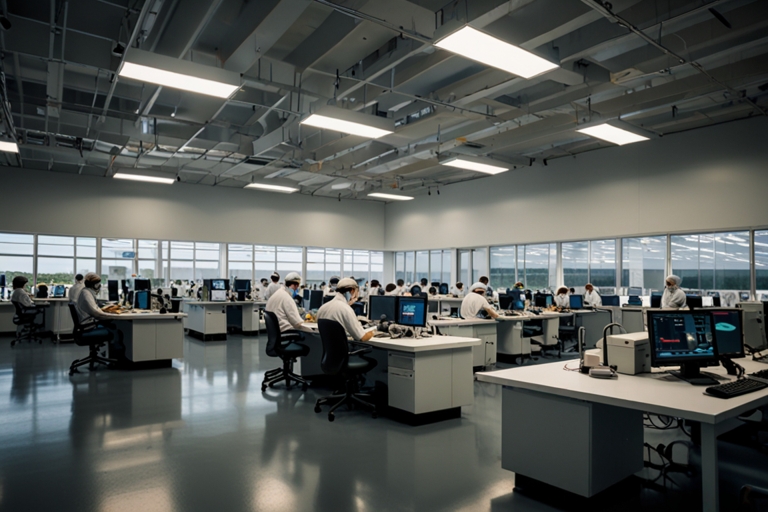
TL;DR
- Texas Instruments (TI) plans to invest over $60 billion to expand semiconductor manufacturing across seven US fabrication plants in Texas and Utah, creating more than 60,000 jobs.
- The investment supports the US government’s push to onshore critical tech supply chains and maintain competitiveness with China.
- TI partners with leading tech and automotive companies like Apple, Nvidia, and Ford in this effort.
- The expansion aligns with broader US industry investments, including Apple’s $500 billion US plan and GM’s $4 billion manufacturing boost.
Texas Instruments’ Historic $60 Billion Investment in US Semiconductor Manufacturing
Texas Instruments, a major semiconductor manufacturer, has announced a record-breaking investment of more than $60 billion to build and expand seven fabrication plants in Texas and Utah. This initiative aims to significantly increase domestic production of semiconductors, the tiny integrated circuits essential for modern electronics ranging from smartphones to automobiles.
The planned expansions are expected to generate over 60,000 new jobs and help alleviate current supply chain challenges that have exposed vulnerabilities in global chip manufacturing. This move supports the Trump administration’s broader strategy to onshore critical tech manufacturing and counter growing competition from China’s semiconductor industry.
Strategic Importance for US Tech Industry and National Security
Texas Instruments’ investment fits within a wave of large-scale corporate commitments to strengthen the US technology sector. The company collaborates with major tech players such as Apple, Nvidia, and Ford to supply essential chips for a wide range of products.
Other notable investments include:
- Apple’s commitment to spend $500 billion on expanding US facilities and manufacturing capabilities.
- General Motors’ announcement of a $4 billion investment to boost US auto production.
- Joint venture Stargate, created by Oracle, OpenAI, and SoftBank to develop AI infrastructure domestically.
Together, these investments demonstrate a renewed focus on reviving American manufacturing and securing technology supply chains critical for economic and national security.
Challenges in Fully Onshoring Semiconductor Manufacturing
Despite strong investment momentum, experts caution that manufacturing high-tech products like iPhones domestically remains complex. The US currently faces:
- A shortage of skilled labor with expertise in semiconductor fabrication.
- Dependence on global suppliers for specialized materials and components.
- Complex, multinational supply chains essential to modern electronics production.
For instance, the Trump Organization’s planned smartphone aims to be “proudly designed and built” in the US, but analysts note the difficulty in sourcing all components domestically.
US Government Support and Strategic Goals
US Commerce Secretary Howard Lutnick emphasized the strategic importance of TI’s investment:
“Our partnership with Texas Instruments will support US chip manufacturing for decades to come, securing the future of American technology leadership.”
The Trump administration has prioritized semiconductor manufacturing through policy incentives, tariffs on foreign goods, and fostering public-private partnerships to compete globally—especially against China’s growing tech ambitions.
The Data
| Metric | Value | Source |
| TI Investment Amount | $60+ billion | CNN |
| Number of New Jobs Created | 60,000+ | CNN |
| Apple US Manufacturing Investment | $500 billion | Apple Newsroom |
| GM US Production Investment | $4 billion | GM Media |
The Road Ahead: Strengthening American Semiconductor Leadership
Texas Instruments’ commitment marks a pivotal step in reinforcing America’s position in semiconductor manufacturing. This investment is expected to:
- Enhance US supply chain resilience by reducing reliance on overseas fabs.
- Create tens of thousands of skilled jobs across Texas and Utah.
- Support critical industries including automotive, consumer electronics, and data infrastructure.
- Reinforce public-private collaboration in advancing next-generation chip technologies.
As the US races to stay ahead in the global technology landscape, investments like these are critical for maintaining competitive advantage and securing economic growth.






